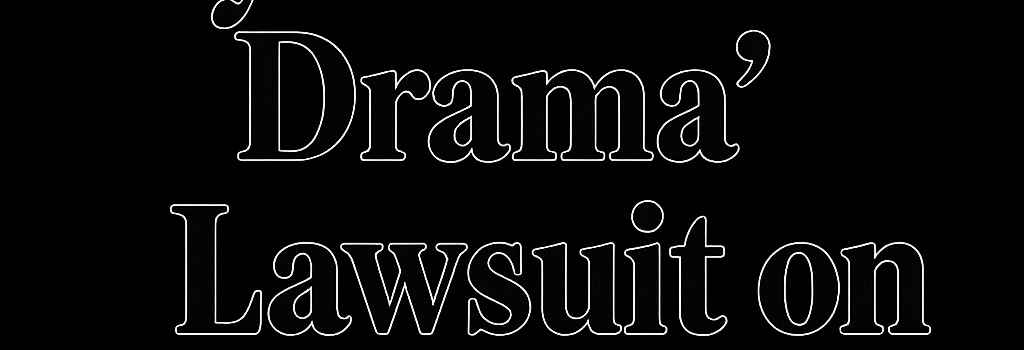Impact of ‘Sylvanian Drama’ Lawsuit on Influencer IP Rights

By Ashley Belanger – Jul 22, 2025
Exploring copyright, trademarks, and platform policy at the intersection of influencer marketing and toy IP.
Background: From Quirky Parody to Courtroom Clash
The TikTok and Instagram account “Sylvanian Drama,” run by Ireland-based content creator Thea Von Engelbrechten, amassed over 4 million followers before abruptly halting posts in December 2024. Its darkly humorous vignettes feature Calico Critters—tiny anthropomorphic animal dolls by Epoch Company Ltd.—enacting drug deals, murders, and romance. Fans loved the contrast between the dolls’ innocent design and adult themes, but Epoch filed suit in New York federal court in early 2025, alleging copyright infringement, trademark violation, and false endorsement.
Epoch claims Von Engelbrechten monetized the brand without a license, creating confusion about whether “Sylvanian Drama” was company-approved content. The complaint seeks injunctive relief, disgorgement of ad revenues, and statutory damages up to $150,000 per copyrighted work.
Copyright Infringement vs. Fair Use Parody
Copyright law protects expressive works, but U.S. courts recognize fair use for parodies that comment on or mock originals. A key factor is whether the new work transforms the source material with humor or critique.
“Von Engelbrechten’s juxtaposition of saccharine characters with adult scenarios may qualify as parody,” says Eric Goldman, Professor of Law at Santa Clara University. “The court must ‘get the joke’ to find fair use.”
However, Von Engelbrechten marked sponsored posts with #ad, integrating brands like Marc Jacobs, Taco Bell, and Sephora. That dual role—parody creator and paid influencer—could undercut her defense, since courts often view labeled advertisements as commercial, weighing against fair use.
Trademark and Trade Dress Hurdles
Epoch’s trademark claims hinge on “knowing and willful” unauthorized use of its marks. Yet the company holds few registered trademarks on the dolls’ shape or design, relying largely on common-law rights. U.S. trademark law disfavors monopolizing general design elements, especially when variations are limited—e.g., how many ways can you depict a small bunny doll?
“Without registered trade dress, Epoch’s arguments for infringement and false endorsement may collapse,” notes Alexandra Jane Roberts, Trademark Law expert at Northeastern University. “If no trademark, no infringement.”
Influencer Platforms and IP Enforcement
Social media platforms use automated systems—Content ID and digital fingerprinting—to detect and remove infringing media. TikTok’s Rights Management portal allows IP owners to submit reference files. However, these systems struggle with transformative content in short-form videos, often prompting over-broad takedowns or disputes.
Recent platform policy updates under Section 512 of the DMCA require TikTok and Instagram to implement counter-notice procedures. Von Engelbrechten may file a Section 512(f) counterclaim if she believes Epoch’s takedown requests were misrepresentations, potentially seeking up to $2,500 per notice in damages against Epoch.
Regulatory and Policy Context
- Digital Services Act (EU): Requires transparency reports on content moderation and appeals. Though U.S. lawsuit resides in New York, TikTok’s global operations may face parallel challenges in the EU.
- Federal Trade Commission (FTC): Recent guidance tightens disclosure requirements for sponsored content. Influencers must clearly identify sponsorships beyond generic
#adtags, specifying the commercial relationship to avoid deceptive practices. - First Amendment Considerations: Both copyright and trademark law carve out expressive work exceptions. Courts balance IP rights against free speech, especially in politically or socially critical parodies.
Technical Mechanisms for Content Moderation
- AI-driven Detection: Neural networks analyze audio-visual streams for matches to a reference database. False positives are common when parodies manipulate lighting or audio pitch.
- Hash Matching: Platforms create perceptual hashes of videos. Transformed content may evade detection, giving parodists room to argue non-infringement.
- User Appeals: Creators can dispute takedown through built-in appeal workflows. According to TikTok’s Q1 2025 Transparency Report, 22% of counter-notices reversed the original removal.
Impact on Influencer Marketing Industry
If Epoch prevails on disgorgement of revenues from partnerships, brands may become wary of influencer collaborations involving third-party IP. Agencies could tighten contract clauses, requiring proof of licensing or indemnification before sponsoring any fan-made content.
Conversely, a win for Von Engelbrechten may embolden creators to push creative boundaries under the transformative use doctrine. Legal advisory firms report a 15% uptick in fair-use assessments requested by influencers in H1 2025.
Possible Defenses and Settlement Paths
Von Engelbrechten’s legal team may invoke:
- Nominative Fair Use: Using Epoch’s marks only to identify the dolls, arguing necessity and no misleading alteration.
- Absence of Confusion: Demonstrating that viewers differentiated company content from parody, using social-listening data and brand perception surveys.
- Transformative Use: Emphasizing the new expression and commentary on social norms, beyond mere doll reenactments.
Experts suggest a negotiated licensing deal could salvage the brand relationship. Epoch could require creative guidelines and revenue sharing, while preserving the show’s fan base and preventing costly litigation.
Looking Ahead: Precedent and Consumer Backlash
Intellectual property attorneys warn that aggressive enforcement without clear trade dress registrations may backfire. Millennials and Gen Z audiences prize authenticity; suing beloved creators can lead to reputation risk and social media boycotts.
“A collaborative approach could set an industry precedent, defining safe harbors for parody influencers,” says Rebecca Tushnet of Harvard Law. “Courts may soon clarify the boundaries of fair use in the era of short-form video.”
Conclusion
The outcome of Sylvanian Drama will likely influence how IP owners and influencers negotiate content rights in a social media landscape increasingly dominated by rapid, transformative storytelling. Whether Tropes & Toys or Toys & Tropes, the next chapter in influencer IP litigation is just beginning.